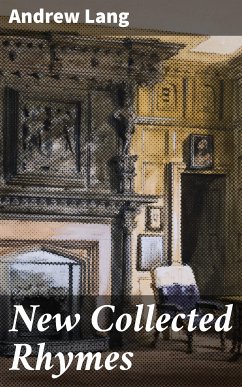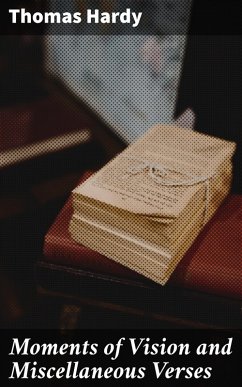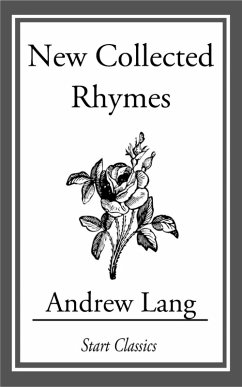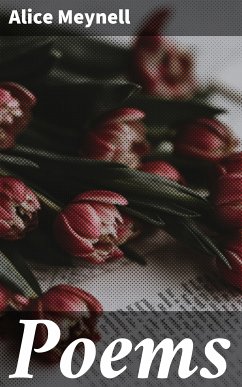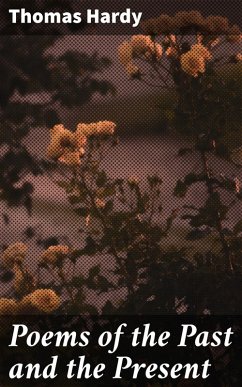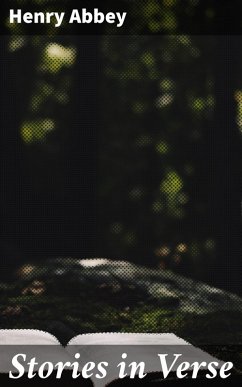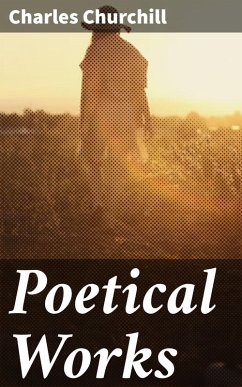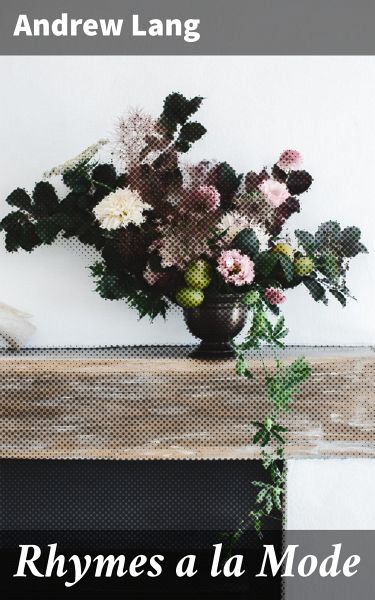
Rhymes a la Mode (eBook, ePUB)
Whimsical Verses from a Victorian Wordsmith
Versandkostenfrei!
Sofort per Download lieferbar
0,49 €
inkl. MwSt.
Weitere Ausgaben:

PAYBACK Punkte
0 °P sammeln!
In "Rhymes a la Mode," Andrew Lang presents a delightful collection of verse that reflects the whimsical and often satirical spirit of the late Victorian era. The poems showcase Lang's mastery of form and rhyme while deftly engaging with contemporary social issues, including class distinctions and cultural norms. The literary style is characterized by its playful language and clever wordplay, with Lang drawing inspiration from the poetic traditions of his time, including the influences of folk tales and classical themes, enveloping readers in a tapestry that bridges the lighthearted and the pr...
In "Rhymes a la Mode," Andrew Lang presents a delightful collection of verse that reflects the whimsical and often satirical spirit of the late Victorian era. The poems showcase Lang's mastery of form and rhyme while deftly engaging with contemporary social issues, including class distinctions and cultural norms. The literary style is characterized by its playful language and clever wordplay, with Lang drawing inspiration from the poetic traditions of his time, including the influences of folk tales and classical themes, enveloping readers in a tapestry that bridges the lighthearted and the profound. Andrew Lang, a prolific Scottish author and ethnologist, was deeply involved in the literary and cultural movements of his era. His background in classical studies and significant contributions to folklore reinforce the thematic depth found in "Rhymes a la Mode." Lang'Äôs experiences ranging from editing the celebrated "Blue Fairy Book" to his interest in anthropology likely shaped his desire to explore the interplay between modernity and tradition, revealing a keen observation of human nature beneath a veneer of humor. For readers seeking a blend of humor, insight, and social commentary within a rich poetic structure, "Rhymes a la Mode" offers an engaging experience. Lang's wit and skillful rhyming will resonate with those who appreciate literature that entertains while provoking thought about societal norms. This collection serves as a testament to Lang's literary legacy, making it a worthy addition to any poetry enthusiast's library.
Dieser Download kann aus rechtlichen Gründen nur mit Rechnungsadresse in A, B, BG, CY, CZ, D, DK, EW, E, FIN, F, GR, H, IRL, I, LT, L, LR, M, NL, PL, P, R, S, SLO, SK ausgeliefert werden.




